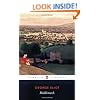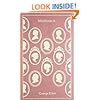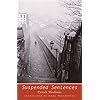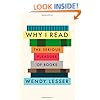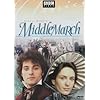




My Life in Middlemarch Hardcover – Deckle Edge, January 28, 2014

Don't have a Kindle? Get your Kindle here, or download a FREE Kindle Reading App.
Product Details
Would you like to update product info or give feedback on images?.
|
Editorial Reviews
Amazon.com Review
Rebecca Mead on writing My Life in Middlemarch
I first read Middlemarch, which many critics consider the greatest novel in the English language, when I was seventeen. The novel tells the interweaving stories of several residents of a provincial town in the Midlands; but to describe it this way is a bit like describing Everest as a really tall, ice-covered mountain. In its psychological acuity and generosity of spirit, in the deftness of its humor and immensity of its intelligence, Middlemarch offers everything we go to books for. It’s awesome, in every sense of the word.
I’ve gone back to it every five years or so since, and every time I see something new. When I was an anxious, aspiring teenager, it seemed to be all about the anxieties and aspirations of youth. In my twenties, stumbling through misbegotten love affairs, it seemed to be about the meaning of love and marriage. In my thirties, establishing my career as a writer, the novel seemed to offer cautionary insight into how one might or might not achieve one’s ambitions. By the time I was forty, conscious of the doors of youth closing behind me, the book seemed to offer a melancholy insight into the resignations of middle age.
So revisiting Middlemarch by writing a book about it was also way of reckoning with the life I had lived so far: of looking at the choices I had made, the paths I had taken, and considering the alternative lives I had left unlived. For it, I read the diaries and letters of George Eliot, the book’s author, who was born Mary Ann Evans in 1819; I visited the places she had lived, and I read about the lives of people who had been close to her. Having started out as the humble daughter of a provincial land agent, Eliot transformed herself into one of the dominant intellectual forces of her era—first as an editor and critic for the most important London periodicals, and only later as a novelist. “One has to spend so many years in learning how to be happy,” she wrote to a friend when she was just twenty-four. She did find happiness: in love found late, and in a vocation discovered in maturity. “I feel very full of thankfulness for all the creatures I have got to love, all the beautiful and great things that are given to me to know, and I feel, too, much younger and more hopeful, as if a great deal of life and work were still before me,” Eliot wrote in 1861, when she was forty-one. Her greatest work was still before her: Middlemarch was ten years in the future.
I hope that I have written a book that can be read by people who haven’t read Middlemarch—though I also hope that my book will make those readers want to discover George Eliot’s masterpiece for themselves. I wanted to write a book that would speak to any passionate reader. Often, reading is thought of as escapism: we talk of “getting lost” in a book. But a book can also be where one finds oneself; and as I wrote My Life in Middlemarch I found that the novel spoke to me differently than it had during any of my earlier readings. Going back to Middlemarch gave me the chance to look at where I was in my life, and to ask myself how I had got there—and to think, with a renewed sense of hopefulness, about where I might go next.
From Booklist
More About the Author
Customer Reviews
Most Helpful Customer Reviews
Mead is a natural writer. Her prose just glides effortlessly (which is not at all effortless for a writer to accomplish), making it so easy to sink into the book and forget the world. I became lost in it, reveling in Victorian era literature. And, though I'd never heard of her previously, I felt I had a good sense of who she was personally from how thoroughly she described the impact the book really had on her. She brought the book, George Eliot and the whole era alive.
Lovers of Victorian literature, this is your book. It won't disappoint, I positively guarantee it. Those who love books about readers, writing and books will love it, as well.It will probably make my list of top ten reads of 2014.
Middlemarch is a favorite book of the author, Rebecca Mead, and she has read and re-read it throughout her life. I was a little worried that this was going to be a memoir all about the author, with only bits of Middlemarch thrown in. Instead it was nearly the opposite - this book is mostly about Middlemarch and the author of Middlemarch, George Eliot (Mary Ann Evans) - with only bits and pieces of the author's life thrown in the mix.
Each time Rebecca Mead has read Middlemarch she has gleaned different meaning from it, and the more she learned about George Eliot and her life, the more common ground she discovered between her and Eliot. It really is amazing how many similarities are found in their lives. In this book Mead breaks down Middlemarch into its books and discusses each section - weaving in biographical information about George Eliot and her family.
I had never read anything about George Eliot before and very much enjoyed learning about her life and the time in which she lived. I also enjoyed another glimpse into Middlemarch and the meaning behind the beloved novel.
I would recommend this to anyone who enjoyed reading Middlemarch and anyone who loves "books about books".
Mead has read George Eliot's Middlemarch (Penguin Classics) four times. The first reading was at age 17. I STILL have not read any work of George Eliot. When I was 15 or 16, I barely escaped being forced to read Silas Marner and Two Short Stories (Barnes & Noble Classics), which the literary scholars in my high school class had universally proclaimed to be the most boring book ever. It was even set in the 19th century, and what could we learn from that? Fortunately we were given the choice of reading the more "hip" The Catcher in the Rye I must have been in my 30's before I discovered that "George" was a woman.Read more ›
Some of the topics explored here include Eliot's decision to risk ostracism in order to live with George Henry Lewes, a man who helped her enormously with her work, but who was also technically married to someone else; her subsequent marriage to a man twenty years her junior after Lewes' death; her choice to break with her religious upbringing as a young woman; and the contrast between falling in love as a youth and developing a lifelong partnership/marriage.Read more ›
